Dealing with the aftermath of a golf cart accident in Georgia requires immediate action. This article provides a comprehensive checklist on what to do after a golf cart accident in Georgia, from securing the scene and treating injuries to understanding your legal rights. Follow our straightforward steps to navigate your responsibilities and options after the accident, ensuring your safety and the protection of your interests.
Key Takeaways
- After a golf cart accident in Georgia, it is critical to prioritize safety by contacting emergency services, assessing and treating injuries, and securing the scene to prevent further damage or harm.
- Gathering evidence is vital for supporting legal claims, which involves documenting the scene, obtaining witness statements, and preserving physical evidence without tampering.
- Understanding local Georgia laws regarding golf cart operation, licensing, and safety regulations is essential, as well as determining liability through comparative negligence laws and consulting an attorney for legal assistance.
Immediate Actions Following a Golf Cart Accident
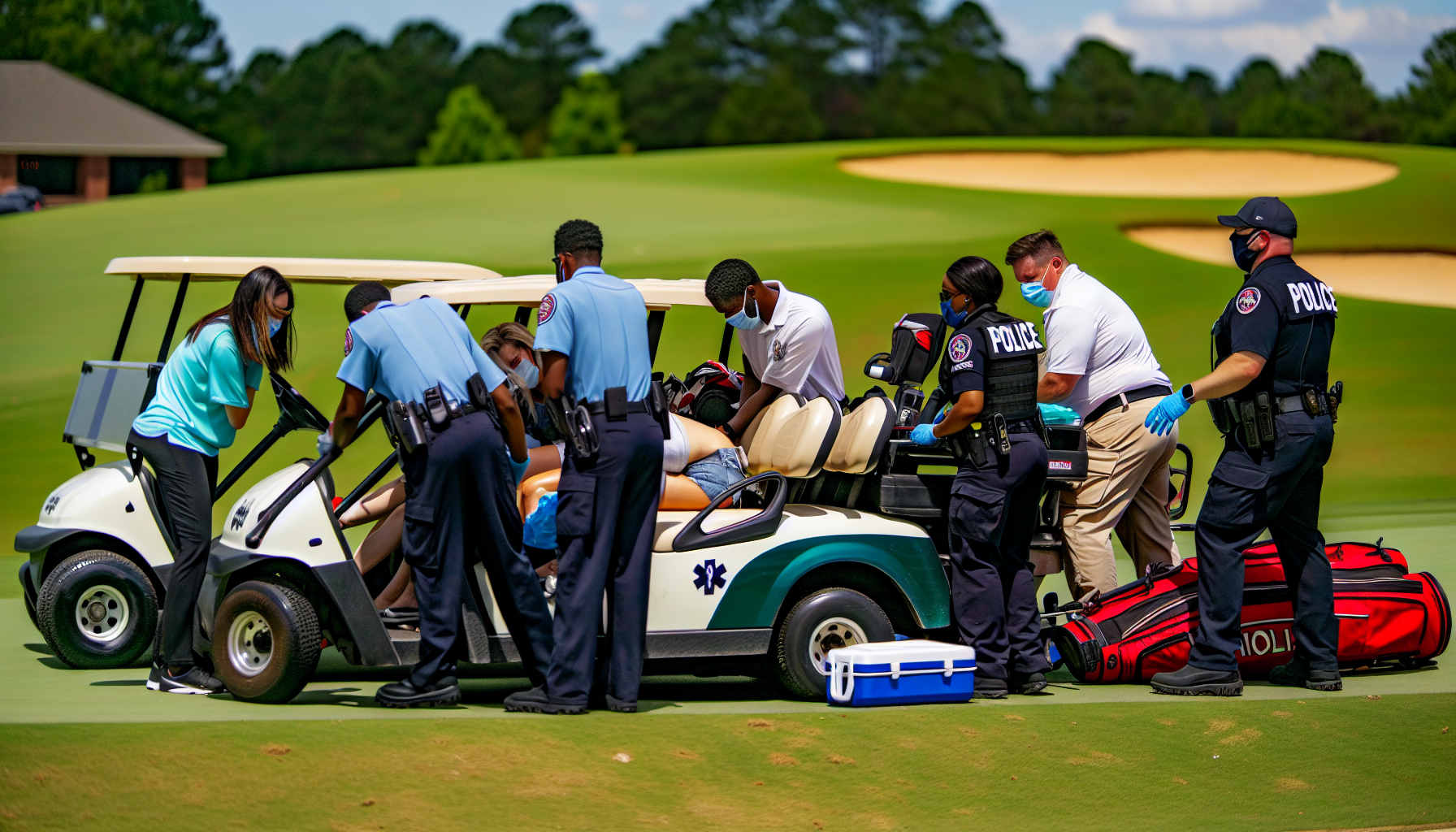
The moments following a golf cart accident can be chaotic and disorienting. Prioritizing the safety of everyone involved is paramount. This includes contacting emergency services, assessing and treating injuries, and securing the accident scene to prevent further harm.
Contact Emergency Services
Regardless of the severity of your injuries, immediate notification of the authorities is imperative. In Georgia, the law advises contacting 911 if injuries are sustained or if property damage exceeds $1,000.
When reporting the incident, provide as much information as possible about accidents involving golf carts and any potential golf cart related injuries. Remember, seeking medical assistance promptly can prevent minor injuries from escalating into major health issues.
Assess Injuries and Provide First Aid
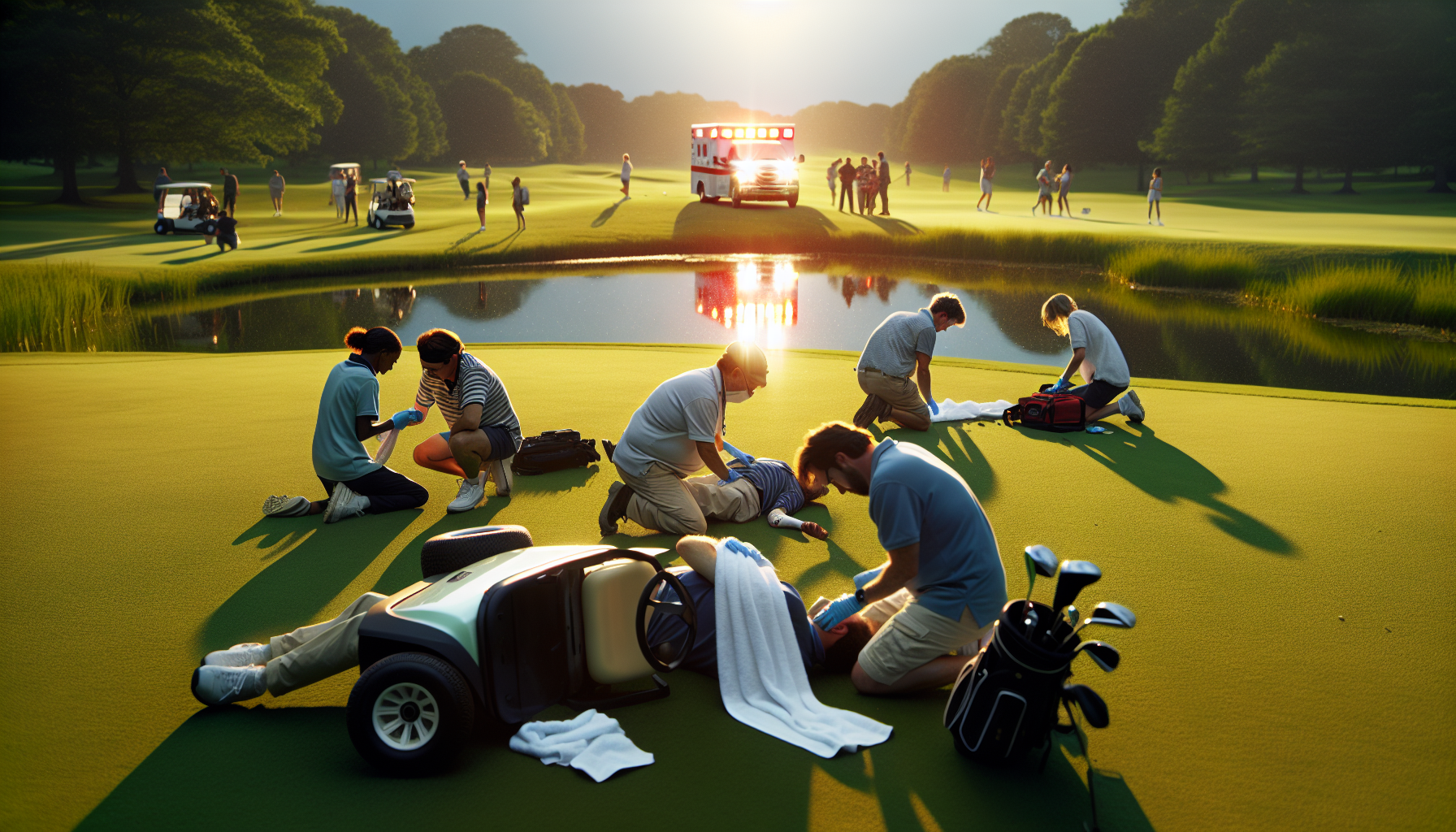
Injuries from golf cart accidents can range from minor scratches to serious injuries, such as fractures, spinal cord injuries, or traumatic brain injuries. Evaluating golf cart injuries of each individual involved in the golf cart crash and providing first aid, if possible, is of paramount importance. Golf cart crashes, like any other accident, may have some injuries that are not immediately apparent due to the shock of the golf car accident, so it’s best to seek professional medical attention.
Secure the Accident Scene
Preventing further damage or injury necessitates securing the accident scene immediately. This includes:
- Alerting oncoming traffic of the accident
- Ensuring that all passengers are safely out of the way
- If the golf cart is still functional, move it off to the side of the road to prevent blocking traffic or causing another accident.
Gathering Evidence at the Accident Site
Once the safety of everyone involved is ensured and authorities are alerted, you should then proceed to collect evidence. This can provide crucial support for any potential legal claims. From photographing the accident scene to gathering witness statements, every piece of information can be vital in piecing together the events leading up to the accident and determining who was at fault.
Document the Accident Scene
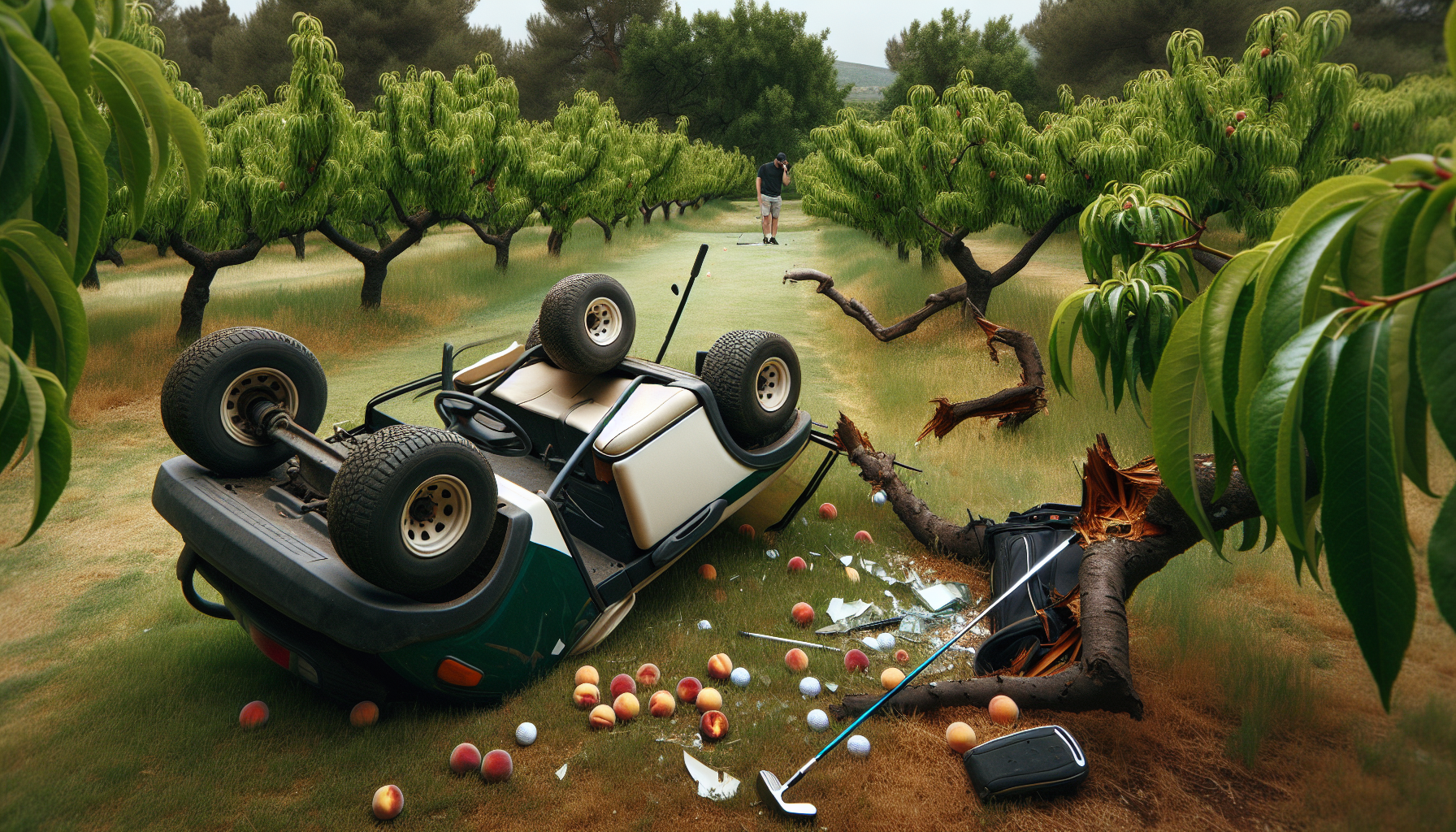
To document the accident scene, use your smartphone to take photographs and videos. Capture images of:
- the golf cart
- any property damage
- visible injuries
- any contributing factors to the accident, such as road conditions or traffic signs
Remember, these images may serve as powerful evidence if liability becomes a point of contention.
Obtain Witness Statements
Witnesses can provide a third-party perspective of the accident, which could be crucial if there are conflicting accounts. Approach potential witnesses politely, ask them for their contact information, and if they’re willing, a brief account of what they saw.
Preserve Physical Evidence
Physical evidence, such as damaged golf cart parts or debris from the accident, can be critical in understanding the dynamics of the accident and establishing fault. Collect and safely store any physical evidence from the scene, and remember that tampering with it could be detrimental to your case.
Understanding Georgia Golf Cart Laws and Regulations
Just like any motor vehicle, golf carts are subject to certain laws and regulations. Being familiar with these laws is vital if you find yourself involved in a golf cart accident in Georgia. Not only can they affect liability and compensation claims, but they can also help you understand your rights and responsibilities as a golf cart driver.
Licensing and Operation Requirements
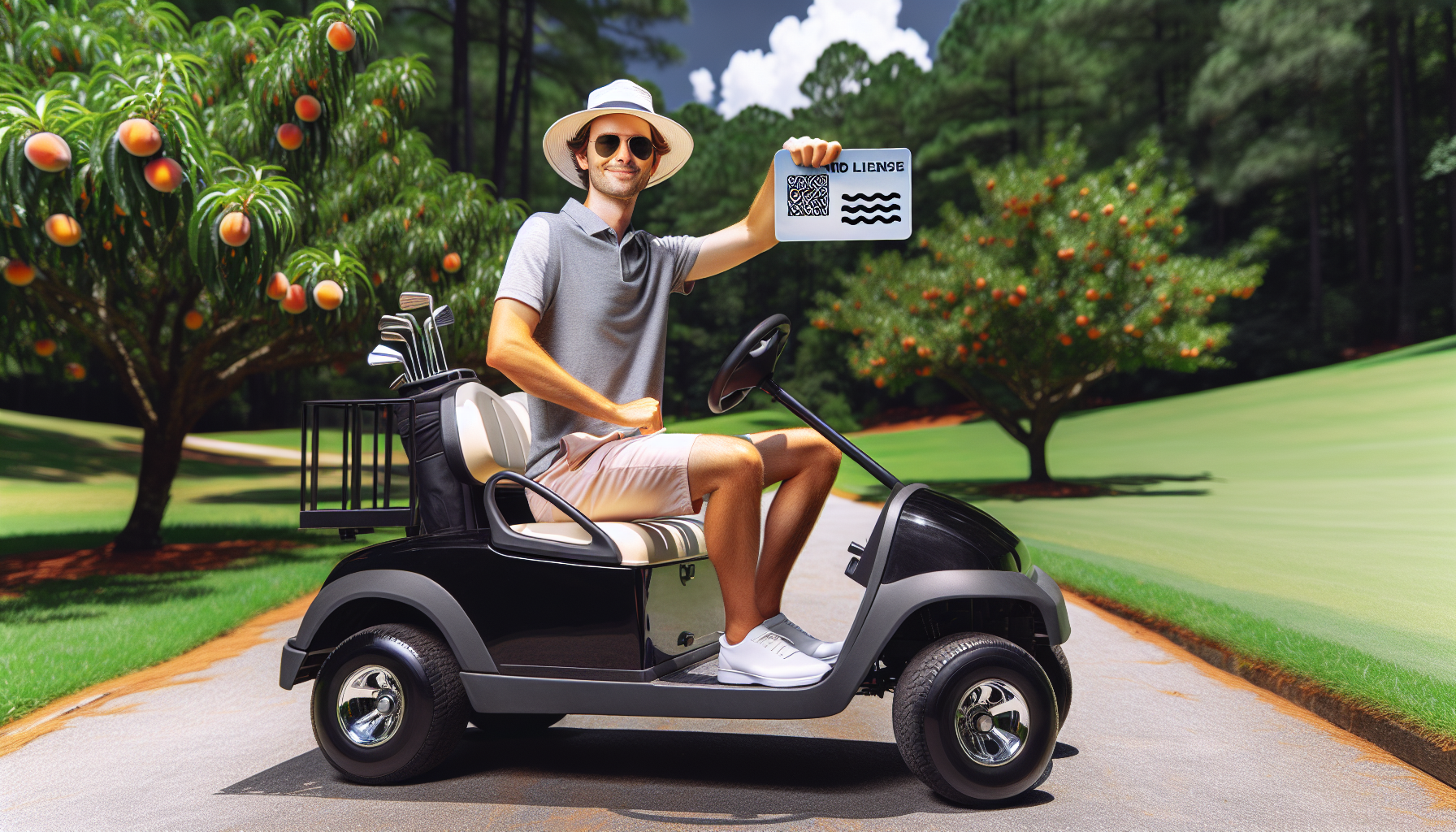
In Georgia, the rules for golf cart drivers are as follows:
- Drivers must be at least 16 years old and possess a valid driver’s license
- Individuals aged 12 and above can operate a golf cart if they are accompanied by a licensed driver who is at least 18 years old.
Safety Features and Speed Limits
Safety features and speed limits are integral to preventing accidents. Golf carts should be equipped with seat belts, brake lights, and indicators. In Georgia, the maximum speed limit for golf carts is set at 15 miles per hour. This regulation ensures the safety of both golf cart drivers and pedestrians.
Golf Cart Usage on Public Roads and Sidewalks
Golf carts can be driven on certain public roads and sidewalks in Georgia, as well as on designated golf courses. However, they are subject to specific rules and regulations. It’s important to be aware of these regulations to avoid potential fines and penalties.
Determining Liability in Golf Cart Accidents
Post-accident, establishing liability is crucial in deciphering who is accountable for damages and injuries. This process involves understanding Georgia’s comparative negligence laws, identifying all potential liable parties, and gathering the necessary evidence to support your claim.
Comparative Negligence in Georgia
Georgia’s comparative negligence laws allow you to seek damages even if you were partially at fault for the accident. However, you must be less than 50% at fault to recover damages.
Understanding these laws is important in determining how much compensation you may be able to receive.
Identifying Liable Parties
Identifying all parties that may be liable for the accident is a complex process. These parties could include the golf cart operator, the manufacturer of the golf cart, or the owner of the property where the accident occurred.
A thorough investigation is necessary to ensure all liable parties are held accountable.
Seeking Medical Attention and Documenting Injuries
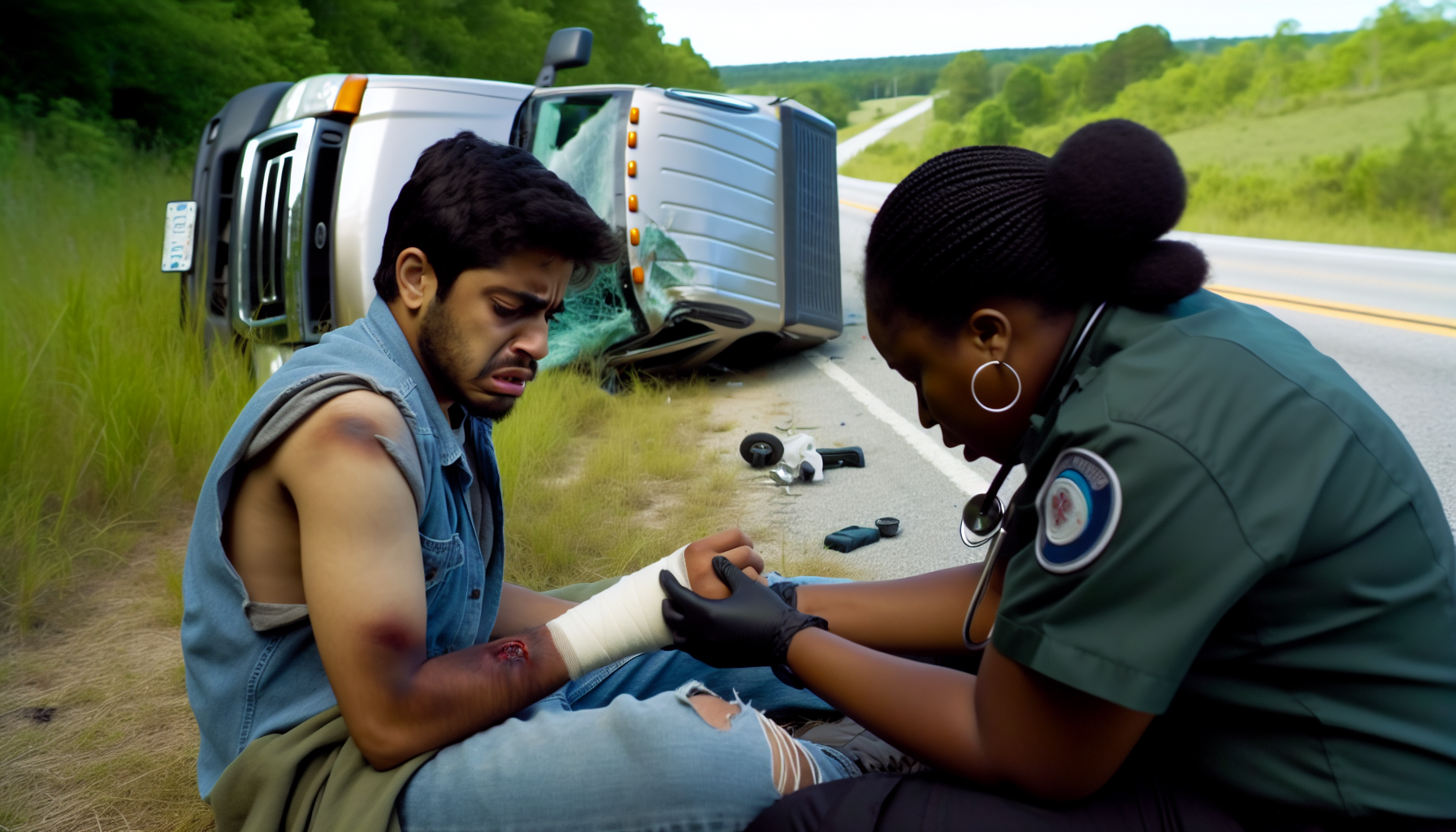
In case of injuries from a golf cart accident, seeking immediate medical attention is essential. Even if you don’t feel hurt, some injuries may not become apparent until later. Besides, documenting your injuries plays a significant role in constructing your legal case.
Follow-Up Medical Care
For both your recovery and your legal case, follow-up medical care proves to be important. It allows your healthcare provider to monitor your progress and to document the extent of your injuries. Make sure to follow all of your healthcare provider’s recommendations and to keep all appointments.
Keep Detailed Records
Keeping detailed records of all your medical treatments, expenses, and any other relevant information related to your injuries is crucial. This includes keeping all medical bills, receipts for any out-of-pocket expenses, and a record of lost income due to your injuries. These records will be important evidence in your claim for compensation.
Consulting a Georgia Golf Cart Accident Attorney
Engaging a golf cart accident attorney can prove incredibly useful if you’ve been part of a golf cart accident in Georgia. An experienced attorney can help you understand your rights, navigate the legal process, and work to ensure you receive the compensation you deserve.
When to Contact an Attorney
Reaching out to an attorney as promptly as possible post-accident is recommended. This allows the attorney to start gathering evidence while it’s still fresh and to ensure that all legal deadlines are met. Remember, Georgia law limits the amount of time you have to file a lawsuit after an accident.
How an Attorney Can Help
An experienced personal injury lawyers can:
- Guide you through the complexities of the legal process
- Gather evidence
- Negotiate with insurance companies
- Represent your interests in court if necessary
- Ensure that your rights are protected
- Work to secure the maximum possible compensation for your injuries.
Summary
In summary, understanding what to do after a golf cart accident in Georgia can be crucial to ensuring your safety, protecting your rights, and obtaining the compensation you deserve. From immediate actions to legal considerations, each step plays a vital role in your recovery process. Remember, when in doubt, it’s always best to consult with a legal professional who specializes in golf cart accidents.
Frequently Asked Questions
How long do I have to file a claim after an accident in Georgia?
You have two years to file a claim with an insurance company after a car accident in Georgia. It's important to keep this deadline in mind.
Is Georgia a no-fault auto accident state?
No, Georgia is not a no-fault state when it comes to auto insurance claims. You need to show which driver was to blame for the crash in order for the insurance company to pay for damages.
What happens after a car accident not your fault in Georgia?
When another driver is at fault in a car accident in Georgia, you can seek damages from their insurance company, including medical expenses, property damage, pain and suffering, and lost wages.
What is the first thing I should do after a golf cart accident in Georgia?
After a golf cart accident in Georgia, the first thing to do is prioritize safety by contacting emergency services, assessing and treating injuries, and securing the accident scene to prevent further harm.
What are the laws and regulations regarding golf cart usage in Georgia?
In Georgia, golf cart usage is subject to specific laws and regulations, including licensing, operation requirements, safety features, speed limits, and rules for using them on public roads and sidewalks.

